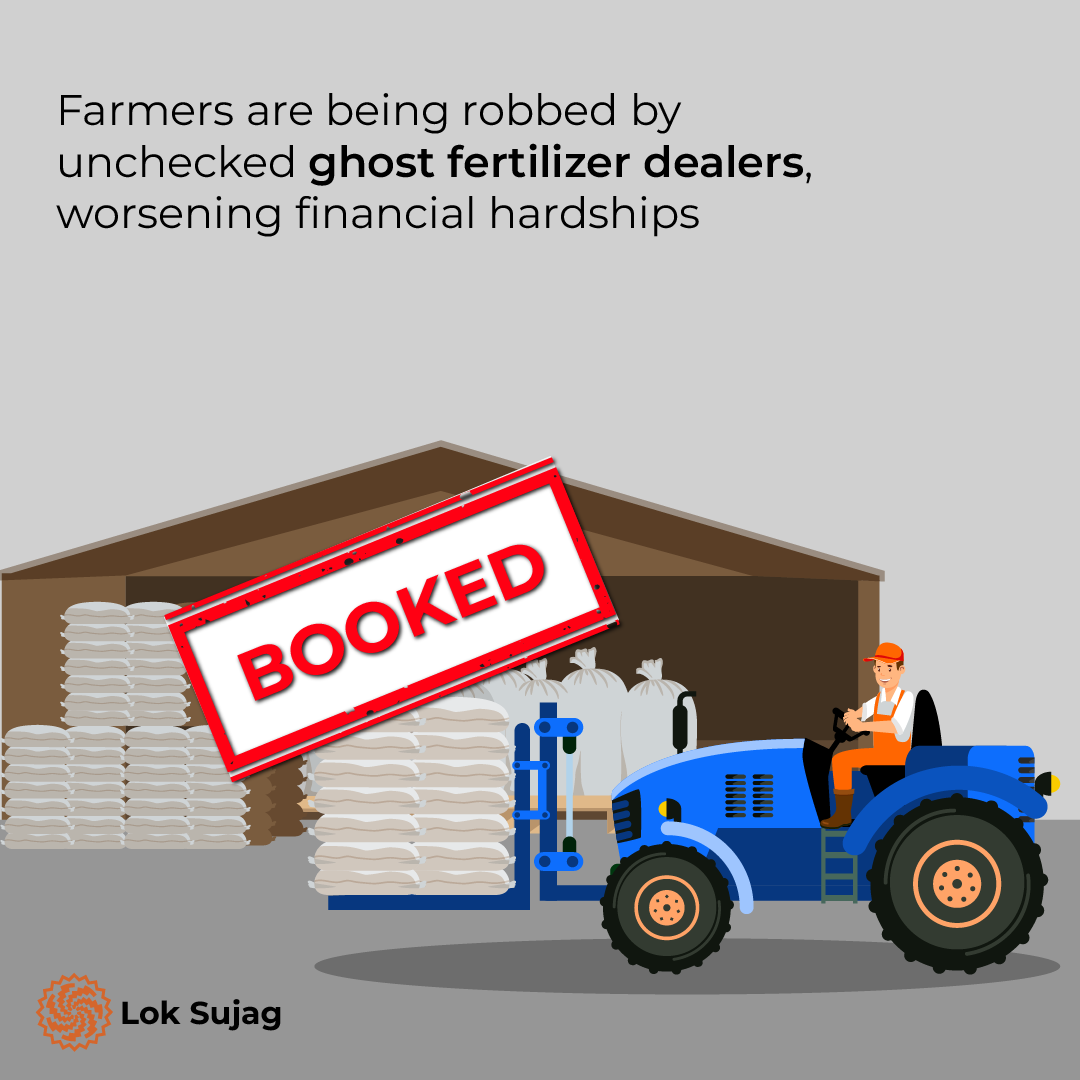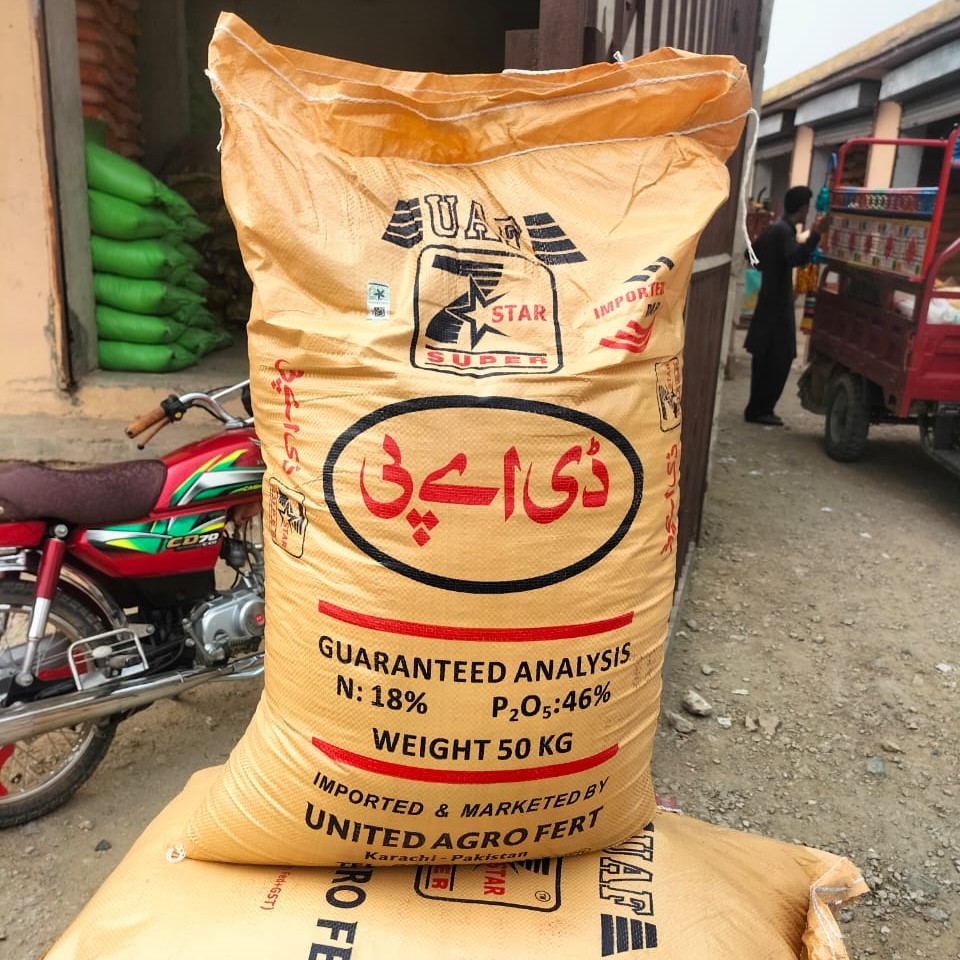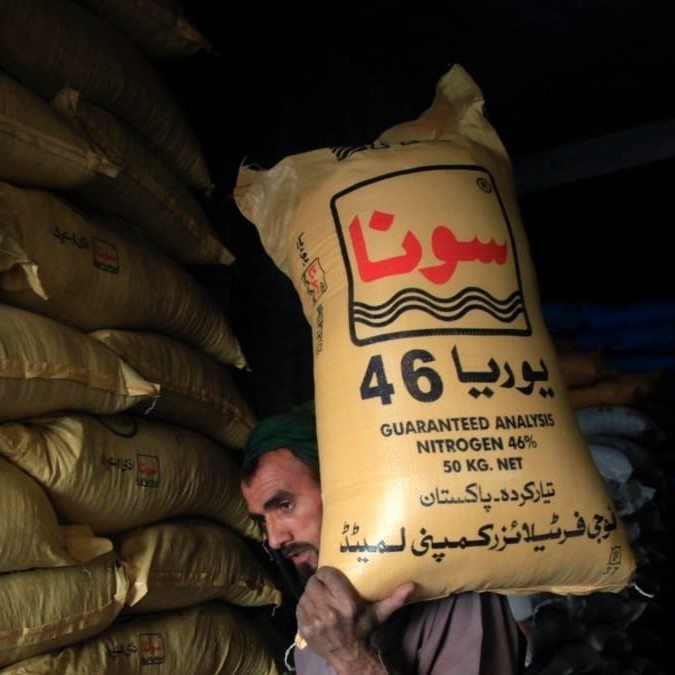Mureed Abbas, a landowner in the Notak Nasheeb area of Bhakkar, cultivated wheat over 50 acres last year. This year, he has opted for wheat on 30 acres and sugar beets on the remaining land.
He attributes the reduction in wheat cultivation to uncertainty, emphasising that urea fertiliser is not available in the Bhakkar district.
“Even if urea is available for the first irrigation, there is no guarantee of its availability for the second irrigation.”
He says that the government has set the price of urea at Rs 3,450 to Rs 3,650 per bag. However, in the district where it is available, a bag is being sold for Rs5,000, which is Rs 1,600 more than the official price.
He says that electricity and diesel prices have increased significantly in the last three years. “The illicit profiteering from fertiliser has increased the expenses per acre of wheat cultivation, causing distress among the farmers.”
According to the report from the National Fertiliser Development Centre of the federal government, the price of a 50-kilogram bag of DAP (Diammonium Phosphate) fertiliser was Rs10,689 in August 2023, which rose to Rs12,183 two months later.

According to this report, between August and October of the current year, the price of urea increased from Rs. 3,592 to Rs. 3,786 within two months. In October of the previous year, urea fertiliser was available to farmers for up to Rs. 2,425 per bag.
The report also mentioned that 36 lakh 47 thousand tons of urea fertiliser are available in the country for the Rabi season, while the demand for the season could be 33 lakh 35 thousand tons. This means there is an excess of urea fertiliser available in the country compared to the demand.
An estimated nine hundred eleven thousand tons of DAP fertiliser were applied in the current season. In comparison, eight hundred sixty-five thousand tons of urea are available, which indicates a slightly lower quantity than the demand.
Qaiser Abbas Khan, a resident of Mozah Hazara, is involved in the medicine business but has been cultivating his 60-acre land for the past six years. He says that when he started farming, urea was readily available, and the prices were reasonable.

“Despite the relief in prices, we earned less profit from wheat, but for the past two years, the hoarders have made farming difficult. There is a shortage of DAP fertiliser during wheat sowing, and afterwards, urea becomes unavailable.”
He states that the government’s fertiliser prices are only on paper. The government has failed to supply fertiliser to farmers at a controlled rate, and achieving this is impossible without the cooperation of officers involved in overcharging and black marketing.
“The district administration officers, responsible for meeting the wheat procurement target, collect wheat from farmers’ homes. It’s not plausible that they are unaware of some fertiliser dealers’ godowns. If the Deputy Commissioner ensures accountability, the self-created fertiliser crisis can be resolved,” says Qaiser.
According to the Department of Statistics, 403,000 acres of wheat were cultivated in the Bhakkar district last year. This year, wheat has been cultivated on 406,230 acres so far.
Agriculture Officer Dr Sajjad Hussain told Lok Sujag that the district’s wheat cultivation target was 402,000 acres this year.

Wheat cultivation continues until December 15. However, sowing on land cleared of crops continues until the last week of December. This year’s wheat cultivation is expected to be 50,000 acres more than last year. This is because farmers prefer wheat cultivation over canola and mustard.
“The district requires nine lakh bags of urea for wheat. However, from the administration, we have demanded 7,51,960 bags of urea, based on our target. Out of this, we have only received 175,000 bags of urea in October and November, which is also 201,000 bags less than the requirement for the first irrigation.”
The agriculture officer says there is a significant difference between demand and supply.
“One issue is that fertiliser dealers engage in profiteering. On the other hand, if farmers do not receive urea on time, it can lead to losses in the wheat crop.”
Muhammad Nawaz, in charge of the dashboard created at the Deputy Commissioner’s Office (SNA Branch), says that various fertiliser companies supplied approximately 86,000 bags of urea in November. “The Deputy Commissioner of Bhakkar is making concerted efforts to overcome the shortage of urea in the district.”
Also Read

Price surge in Mianwali: Fertiliser dealers manipulate demand and double DAP rates
He adds that the Deputy Commissioner has requested the provincial government to increase the urea quota in Bhakkar through a letter. If the Chief Secretary accepts the request, the difficulties of the farmers in this region will be reduced.
Muhammad Nawaz says that officials from the Agriculture Department have registered approximately forty cases against unauthorised profiteering dealers, resulting in a penalty of 32,00,000 rupees. Moreover, 6,000 bags of fake urea have been seized in the crackdown.
A well-known fertiliser dealer in Bhakkar, speaking on the condition of anonymity, revealed that a significant reason for hoarding and unauthorised profiteering is the existence of ‘ghost dealers.’ These are registered dealers with all fertiliser companies, but their actual location is not Bhakkar; they operate from other districts.
He explains that two major ‘ghost’ dealers from Multan and Dera Ismail Khan, using Bhakkar’s quota as a pretext, acquire thousands of urea bags from fertiliser companies well before the season starts. Subsequently, they distribute it to various small and large fertiliser dealers on credit, with only a few exceptions.
“Individuals purchasing expensive fertiliser from these dealers also resell it to farmers at inflated prices. Although the district administration and agriculture department officials know these ghost dealers, no action has ever been taken against them, and there have been no efforts to revoke their registration with the companies.”
Published on 13 Dec 2023




















